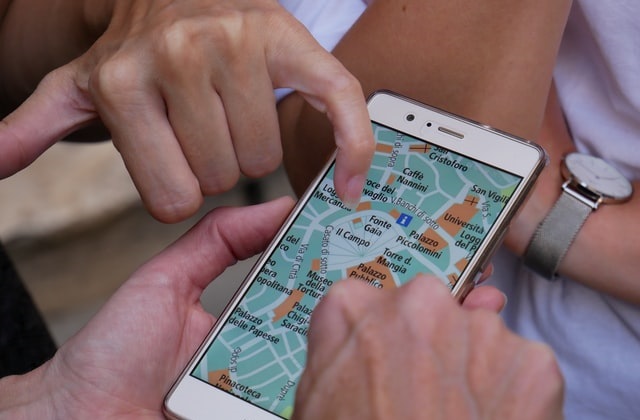“App-less Migrants”: New terminology for the new “normal”
Ibrahim Sirkeci, London, 5 May 2020
As we closely follow the moves by governments around the world planning their ways out of lockdown, the “new normal” is beginning to take shape. Covid-19 Pandemic affected everybody and every corner of our lives, business and home alike. The UK government just announced the trial of a “tracing app” which will be used to isolate cases of Covid-19. We are not sure yet, how this will work and there are more questions than answers as literally nobody knows still how this coronavirus operates. Do we need to stay 1 meter apart from each other as WHO recommends or 2 meters apart as the UK government recommends? Are there going to be further variants? It is now becoming clear that wearing masks in public and regular temperature checks at airports are to become common place.
Among all these though tracing apps to be used for social distancing and ensuring infected people are isolated is the most drastic change looming. In global cities like London, we are already used to live under constant surveillance. These new apps are going to collect personal information linked to live location data and these will be monitored centrally as confirmed by Matthew Gould, the head of NHSx. Apple and Google are proposing their commercial app which allegedly uses a different algorithm and de-centralised to avoid surveillance risks. However, given these companies’ dealings with certain authoritarian regimes, difficult to trust their promise of anonymity.
These apps, lets be honest, should be called surveillance apps. The use of both Bluetooth and GPS, for example, increases the risk of invasion of privacy as well as breaching confidentiality rules in every realm of our lives. Yet, governments are rushing to ensure it will be only used for “disease prevention”. With record breaking downloads in India last week, the government is facing criticism. However, it is not only India, wherever these apps used will see the same threats oncoming.
With these tracking apps, also comes an era of paranoia. The two rival tech giants are claiming they are building a tracing system which will inform people if they encounter someone who has (or to be) diagnosed with Covid-19. The idea is already scary.
Defying the Surveillance: Appless Migrants, Appless Movers
There comes an important implication for migrants and indirectly for migration researchers and scholars. As we know many people around the world try to leave their countries escaping violence, poverty and all other evils. When they enter new territories, they often destroy documents to avoid being sent back to the same misery they run away. This is why we used the term “paperless” or “undocumented” migrants for a long while. Now they will see a further challenge if these apps are made compulsory to download and use. Avoiding detection means avoiding any such apps.
Now these “irregular” movers will face a new challenge: defying the tracing app which may be compulsory across the board soon. The suspicion mentioned above is real. Even the most democratic countries – and don’t forget companies such as Google and Apple- are going to have a surveillance tool in hand and it may be used for good or bad.
Migration and the spread of pandemic is linked as statistically shown by Sirkeci & Yucesahin (2020) and this will lead to major changes in the environment of human mobility in general. There is likely to be further restrictions which are again open to abuse. It is almost certain that nationals of various countries will find barriers to their free movement rising further. Stereotypical application of measures is another area to watch. For settled diasporas, especially Chinese in the West and Westerners in China have already or will see a rise in anti-immigrant sentiment and xenophobic attitudes targeting whoever is perceived to be “foreign”. Unfortunately, the public may be ahead of the President who likes to call it “Chinese virus”.
Reference:

